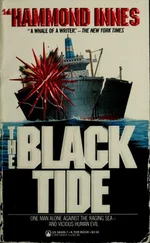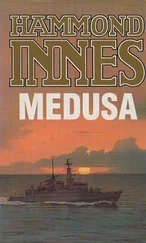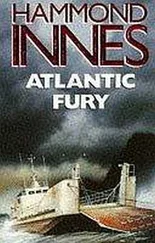Hammond Innes - The Strange Land
Здесь есть возможность читать онлайн «Hammond Innes - The Strange Land» весь текст электронной книги совершенно бесплатно (целиком полную версию без сокращений). В некоторых случаях можно слушать аудио, скачать через торрент в формате fb2 и присутствует краткое содержание. Жанр: Прочие приключения, на английском языке. Описание произведения, (предисловие) а так же отзывы посетителей доступны на портале библиотеки ЛибКат.
- Название:The Strange Land
- Автор:
- Жанр:
- Год:неизвестен
- ISBN:нет данных
- Рейтинг книги:4 / 5. Голосов: 1
-
Избранное:Добавить в избранное
- Отзывы:
-
Ваша оценка:
- 80
- 1
- 2
- 3
- 4
- 5
The Strange Land: краткое содержание, описание и аннотация
Предлагаем к чтению аннотацию, описание, краткое содержание или предисловие (зависит от того, что написал сам автор книги «The Strange Land»). Если вы не нашли необходимую информацию о книге — напишите в комментариях, мы постараемся отыскать её.
The Strange Land — читать онлайн бесплатно полную книгу (весь текст) целиком
Ниже представлен текст книги, разбитый по страницам. Система сохранения места последней прочитанной страницы, позволяет с удобством читать онлайн бесплатно книгу «The Strange Land», без необходимости каждый раз заново искать на чём Вы остановились. Поставьте закладку, и сможете в любой момент перейти на страницу, на которой закончили чтение.
Интервал:
Закладка:
‘It is very kind of you,’ I replied. ‘But things are difficult for you now.’
‘Yes, I know. But for our friends it is still possible to entertain them as I would wish. It is my people who suffer.’ He paused and then said, ‘You were with Monsieur le Capitaine this morning?’
I nodded.
‘Did he say when the food would arrive for my people?’
I explained about the two trucks that had broken down.
‘Yes, yes, I know,’ he said. ‘But why does he have to go to Agdz? Is he gone to bring the food here?’
I couldn’t tell him that Legard had gone to Agdz because of us. ‘Yes,’ I said, ‘he has gone to bring the food trucks.’
‘Good. But he must come soon. The people lose so much of their supplies in the disaster of the souk.’ He said this to himself rather than to us, nodding his head slightly. His age showed then, for he looked suddenly peevish and irritable.
‘They’ll be here tomorrow, I expect,’ I said.
He shrugged. ‘Insh’ Allah!
‘I believe your son is here in Foum Skhira?’ I said.
‘My eldest son, you mean? Ali?’ He nodded. ‘Oui. There is dancing in his honour in Ksar Foum-Skhira tonight. You know him perhaps?’ His eyes had clouded.
‘Yes, I met him in Tangier.’
The pale lids closed almost wearily. In those dropped lids I saw suddenly a similarity between the son and his father. He sighed and changed the subject, talking about the rains and how the souk had been destroyed. And then the tea was made and the hot, sweet, mint-smelling glasses were placed in our hands. ‘Alors,’ the Caid said, ‘you say that you are friends of the Capitaine Duprez.’
I explained that it was Jan who was Duprez’s friend and that he had been with him when he died. The old man nodded and motioned the men, standing like shadows in the doorway, to withdraw. Only the man seated behind the silver-laden tea tray remained. He was small-bodied with a cast in one eye, but he had the old man’s features and he was called Hassan, so that I presumed he was one of the Caid’s sons.
‘Now,’ the Caid said. ‘You have come to talk with me about Kasbah Foum, eh?’
I nodded to Jan to go ahead, and he told him how he had met Duprez, how they had worked together against the Germans in Essen and how Duprez had died there.
The old Caid shook his head and sighed. ‘It is a sad end for him,’ he said.
‘He was serving France,’ Jan pointed out.
‘Mais oui. He always served France. He was a Frenchman. But he should have died here. This was his home and my people were his people also. He was a fine man.’ Remembering what Ali had told me, I was surprised at the warmth in the old man’s voice.
The man behind the tea table rose and replenished our glasses. ‘It is many years ago then that Monsieur le Capitaine died.’ There was a hard shrewdness in the old man’s eyes as he stared at Jan. ‘Why is it only now that you come to tell me how it happened?’
Jan tried to explain why he had not come before, what his life had been since the war, but it was clear that the Caid didn’t really understand. He was not ignorant of the world beyond Foum-Skhira, but to him it was a French world. The complications of other European powers were largely outside his knowledge. ‘I think,’ he said, ‘that you have come because the tall, fair man from America with the big machines is arrived to work at Kasbah Foum.’
‘No,’ Jan said. ‘I came because I had to. I did not know about the American.’ He produced the battered envelope and another smaller envelope containing the letter from Duprez. The Caid waved it aside. ‘I have been told,’ he said, ‘that you are not the man to whom Capitaine Duprez handed the papers. It has been suggested that you killed the man to whom he gave them. First, before I see the letter Capitaine Duprez wrote, you must give proof that you are in reality the man who was with my friend when he died.’
‘How can I do that?’ Jan asked. ‘What can I tell you that will prove it to you?’
The old man thought for a moment. ‘Tell me exactly how he looked and what he told you of his talks with me.’
For several minutes Jan talked, telling him about Marcel Duprez quoting long speeches that Duprez had made to him, about the Caid, about Foum-Skhira, about the Berbers and the country of the south. Only occasionally the Caid interrupted him to clarify a word or to ask a question. Jan was still talking when there was a disturbance at the foot of the stairs below the room where we were seated. Several men were talking, quickly, angrily, in Berber, and then there was the light patter of sandals on the earthen stairway.
The Caid turned his head towards the entrance, his forehead contracted in a frown.
The footsteps ceased. The figure of a man stood in the doorway. His brown djellaba merged into the black rectangle of the entrance so that he was no more than a vague shape in the darkness. His face was hidden in the hood of his djellaba, but his eyes caught the light of the carbide flames and glinted, as did the curved silver knife at his waist; the eyes and the knife were all that was visible of him. ‘Skun ya? Who is that?’ the Caid demanded.
‘Ali.’ And the man stepped forward into the light, his head and body only slightly bowed in respect for his father.
‘Why do you disturb me? Can you not see that I have guests?’ The Caid’s voice quavered slightly.
‘It is because you have guests that I have come,’ Ali d’Es-Skhira answered. He had moved to his father’s side, towering over the old man who seemed suddenly shrunken and much older.
‘Where have you been? What trouble have you been stirring up among the people?’ The old man’s voice sounded frail and peevish. And when Ali did not answer, he said to him, ‘Go. I will talk with you later.’
But Ali did not move. Tangier and his own rebellious nature seemed to have destroyed all the respect and obedience due from a Berber son to his father. He pointed to us and said, ‘These men come like thieves in the night, O Sidi, to steal from us the wealth of Kasbah Foum.’ He was still speaking in the Arab dialect and his voice throbbed with violence. ‘They are evil men and your people have need of their share of the wealth the foreigner may find in the gorge. Do not be deceived by them. They are thieves.’
‘We are not thieves,’ I answered him in his own tongue, and his eyes blazed at me in the flickering light as he realised that I had understood.
‘You thought that my friend was the man you had employed to purchase the deeds of Kasbah Foum,’ I continued, still speaking the Arab dialect. ‘But this afternoon, when you came to the gorge, you realised that he was not that man, but the true friend of Capitaine Duprez. That is why you have come here now in haste — because you are afraid that your father will discover the truth and will know that this man is the man Duprez chose to prevent you from using Kasbah Foum for your own selfish purposes and not for the benefit of the people of Foum-Skhira, It is you, Si Ali, who are the liar and the thief.’
He took a step forward, his sudden in-drawn breath sounding loud in the stillness of the room. ‘It is the talk of a man who is not sure of himself, sidi,’ he said to his father and gave a quick laugh.
Caid Hassan’s eyes were closed, his body relaxed as though trying to gather energy together inside himself. At length he turned to Jan and opened his eyes. ‘You have told me much that has convinced me,’ he said, speaking in French again. ‘Alors, monsieur, one final thing Did my friend tell you how it happened that I gave him Kasbah Foum?’
‘Oui’,’ Jan said.
‘Then tell me the whole story, and I shall be convinced.’
‘You took tea with him in the middle of the battle,’ Jan said. ‘It was then that you first learned of his interest in Kasbah Foum and the ruined city.’ The old man nodded and Jan continued.
Читать дальшеИнтервал:
Закладка:
Похожие книги на «The Strange Land»
Представляем Вашему вниманию похожие книги на «The Strange Land» списком для выбора. Мы отобрали схожую по названию и смыслу литературу в надежде предоставить читателям больше вариантов отыскать новые, интересные, ещё непрочитанные произведения.
Обсуждение, отзывы о книге «The Strange Land» и просто собственные мнения читателей. Оставьте ваши комментарии, напишите, что Вы думаете о произведении, его смысле или главных героях. Укажите что конкретно понравилось, а что нет, и почему Вы так считаете.












